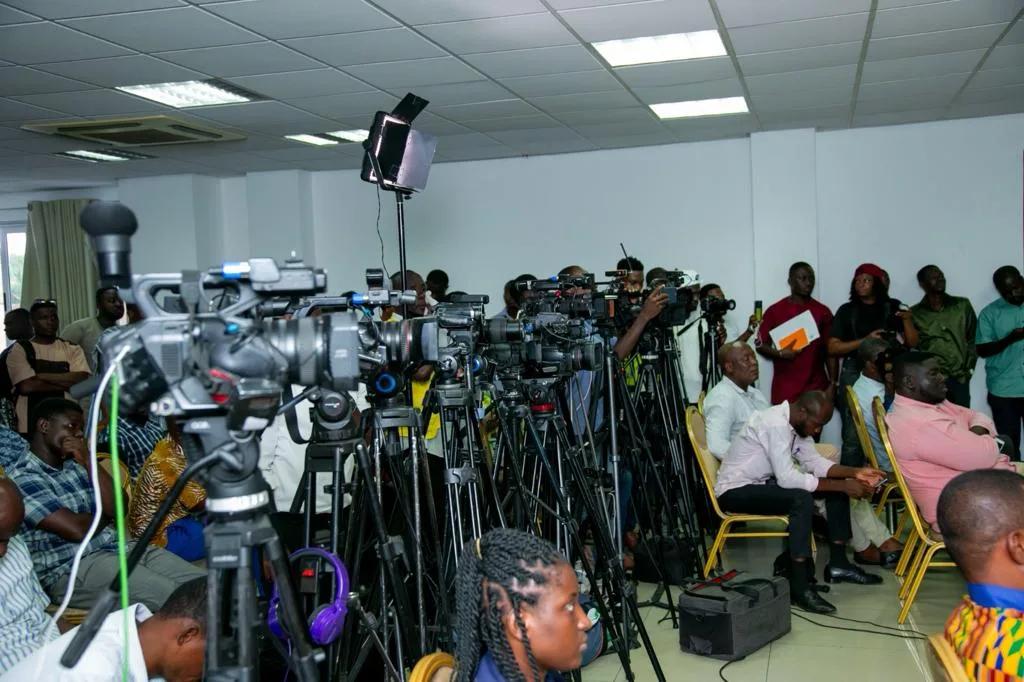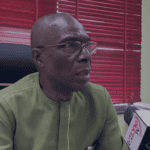A Justice of the Court of Appeal, Justice Ernest Owusu-Dapaa has said “baseless recourse” to the use of the criminal system to gag free expression of ideas by journalists should be discouraged.
According to him, where falsehood is published about someone, which tarnishes or lowers the person’s reputation in the mind of right-thinking members of society, the remedy lies in civil action by way of defamation.
Justice Owusu-Dapaa made this call in his Epilogue after delivering a judgement against former Black Stars Captain, Asamoah Gyan following an action initiated by journalist, Osarfo Anthony for Malicious Prosecution.
“…We need to discourage the baseless recourse to the criminal justice system for trying to gag a free expression of ideas by journalists,” Justice Owusu-Dapaa who was presided as an additional High Court judge said in his Epilogue.
On Friday, December 8, the High Court (Financial and Economic Decision) presided over by Justice Ernest Owusu Dapaa in his judgement said, the Plaintiff discharged the burden of proof and held that the manager of Asamoah Gyan set the whole malicious prosecution in motion.
Consequently, the Court entered judgement in the sum of GHc900, 000 in damages to the Plaintiff.
The Court, additionally, awarded the plaintiff GHc101, 000 for 111 months that he lost from his job which was paying him GHc1, 000 at the time.
Also, an agreed cost of GHc60, 000 was also awarded against Asamoah Gyan and his manager and this bring the total sum to GHc1, 071, 000.
Epilogue
The judge in his Epilogue said, “Freedom of expression and its related media freedom is a very important human right which goes to the very root of our society.
“Freedom of expression and media freedom are crucial rights that form the backbone of our society,” he explained.
“They allow individuals to voice their opinions, ideas, and concerns without fear of censorship or retribution, fostering open dialogue and diverse perspectives within a community or nation.
“The new media, internet, various social media platforms, have actually changed the way journalism is done. And for that matter, it is not uncommon for special websites dedicated to celebrity news to be operated so that various things in the area of entertainment, lives of celebrities, including matters from their public and private life..,” Justice Owusu-Dapaa stated.
“When it comes to telling stories or reports about celebrities, everything about them is often brought into the news for members of the public to laugh, to admire, or even sometimes to criticize them.
“The coverage of celebrities in media often encompasses various aspects of their lives, inviting public reactions that range from admiration to criticism,” the Justice of the Court of Appeal noted.
“In countries like the United Kingdom, even the private lives, including intimate details, of royalty and public figures are reported on by both traditional and new media outlets. This reflects the exercise of freedom of expression and free speech, which are vital for an open and democratic society.
“Journalists, using various media platforms, regularly publish stories about celebrities from different walks of life—be it footballers, musicians, or other fields—making every facet of their lives subject to public scrutiny, including allegations of misconduct or impropriety.
“This broad coverage indeed illustrates the complex nature of freedom of expression within a society. Certainly, when it comes to free speech, freedom of expression, and freedom of the press, it presents a challenge with individuals’ right to privacy and dignity,” the Court said.
“Therefore, in a democratic society, a fine balance has to be negotiated. On the one hand, there is the need for there to be uninhabited expression of ideas, which will promote pluralism and foster debates, and enhance democratic culture, essential for the existence of all modern civilized societies.
“However, individuals are also protected in their reputation as they can use the law of defamation, that is, civil law of defamation, where falsehood is published about them, which tarnishes or lowers their reputation in the mind of right-thinking members of society.
“And for that matter, where a journalist or someone who practices as a media professional publishes a story about an individual, be it a celebrity or any public person, and the story appears to be untrue and damages reputation of that celebrity, the celebrity or the affected individual is very much entitled to invoke the civil suit of defamation to protect his injured reputation.
“However, we need to discourage the baseless recourse to the criminal justice system for trying to gag a free expression of ideas by journalists,” Justice Owusu-Dapaa called.
Find attached full judgment of Justice Ernest Owusu Dapaah delivered on December 8, 2023
Source: Ghana/Starrfm.com.gh/103.5FM/Murtala Inusah




